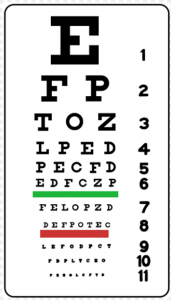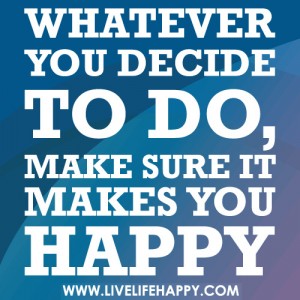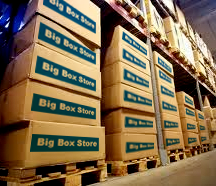 For most of us, tax season is over, and we can now breathe a sigh of relief for another year. If you plan to shred or recycle large quantities of paper, now is the perfect time to do so.
For most of us, tax season is over, and we can now breathe a sigh of relief for another year. If you plan to shred or recycle large quantities of paper, now is the perfect time to do so.
With a little bit of planning, you can get your paperwork in order without too much angst.
Here are 4 tips to help you:
1. Make room for new materials by going through your filing cabinets (or wherever you keep your files). Shred taxes and the back-up documentation older than 7 years, old bills, old insurance policies, old bank statements, or anything old that has personal identifiable information on it. Recycle old newspaper and magazine articles, defunct travel brochures, etc.
2. Review your filing system to determine if the way you have your files set up works well for you. If not, for example, change the names of the files, or change the placement of the files.
3. Set up new files for the New Year if you have not done so yet, labeling them with meaningful names, so they are easily retrievable.
4. Check to see if your township is holding a free shred event. Many towns do so right after tax season to help their residents dispose of their paperwork that has personal identifiable information on it.
Since organizing is an ongoing process, files will have to be tweaked and paperwork will have to be shredded or recycled periodically. Remember, you can also get a lot of information on-line. However, if you follow these few steps, your system will be in order for the rest of 2013, and paperwork that has to be filed will have a home.
Now is the time to Go from Bedlam to Brilliance!
| Ouch! What just fell on my head? Maybe it’s time to organize your clothes closet! To start the process, label containers Donate, Recycle, Homeless (for anything that doesn’t belong in the closet) and Unsure (use this one sparingly). Use a garbage bag for trash. Follow these 13 easy tips: 1. Have a specific objective (for example — be able to store clothing and accessories without overcrowding so you can quickly put things away). 2. Plan the space and assign homes for your things. 3. Pick a corner of the closet to start decluttering. If there is too much stuff to access the closet, start with what’s in front of you. 4. Grab the first item and decide where it goes, either in one of the containers or in its home in the closet. Continue with things on the floor, shelves, and hanging on the rod until your objective is met. 5. Eliminate everything that is not worn (for whatever reason), torn (mend it), stained (clean it), doesn’t fit (donate it) or beyond repair (toss it). If clothes are too small and only if it’s very likely you will fit into and wear them again, store them in a labeled bin. Otherwise they are just daily negative reinforcement. To save space, pack the too-small things in labeled bins and store them elsewhere. 6. Group similar items (short tops, long tops pants, suits) in an order that makes sense to you. To create a rainbow effect, group by color. 7. If it’s clutter, it goes. I define clutter as anything that is not useful or enjoyable and takes up space without serving any real purpose. 8. To contain groups of items, use organizing products for shoes, sweaters, handbags and so on. See Scarf Organizer (below). 9. Decluttering is just a first step. To be organized, it’s crucial to create and follow systems, habits and rules to live by (as I call them) that work for you. 10. Use vertical space above the rod for storage, raise the rod for more accessible floor storage, and see the Closet Rod Doubler (below) to double hanging space. 11. Do not take back anything you removed! Take out the trash, bring donations to your favorite charity and get your tax-deductible receipt, and distribute things in the Homeless box. 12. Maintenance is the key to long-term success so immediately return things to their homes. 13. Reward yourself with a special treat for a job well done! Need more space for hanging clothes? No problem. The closet rod doubler (shown) simply hangs from the main rod, instantly doubling that hanging space. It’s super-easy to install; no tools are necessary. Both height and width are adjustable. This one sells for $19.99 at The Container Store. Click on (or copy and paste the link in your browser): http://www.containerstore.com/shop?productId=10015612&N=&Ns=p_sort_default|0&Ntt=closet+doubler. Closet Rod Doubler Scarf Organizer Scarves are in vogue this spring. If you are unhappy with how yours are stored, this scarf organizer makes it simple and colorful to look at. Organize them by designer, color, size, or material. Try this product for jewelry and belts and, for the guys’ ties. You can buy this one for $5.99 at The Container Store. Click on (or copy and paste the link in your browser): http://www.containerstore.com/shop?productId=10000136&N=&Ns=p_sort_default|0&Ntt=scarf+organizer. Now that it’s so simple to find things and return them where they belong — and everything looks great too — maybe you’ll be motivated to organize the rest of your closets!
|
 Professional organizers help you bridge your old lifestyle with your new lifestyle — working with you to change habits and forge successful ones. Sometimes you need just a gentle nudge to shift from the same old ways of doing things (or not doing them at all!) to new ways. This includes seeing through refreshed eyes — seeing your space, seeing yourself, and seeing the way you use your time.
Professional organizers help you bridge your old lifestyle with your new lifestyle — working with you to change habits and forge successful ones. Sometimes you need just a gentle nudge to shift from the same old ways of doing things (or not doing them at all!) to new ways. This includes seeing through refreshed eyes — seeing your space, seeing yourself, and seeing the way you use your time.
Do you feel mired? As if you can’t quite get any traction? Organizers help break the patterns and free you to start moving again. We help you handle papers differently, approach your closet from a new perspective , and work through your projects — to completion!
Professional organizers’ eyes are judgment free. We don’t look at spaces and draw down a curtain of shame; we look to help clients understand: how did things get piled on the floor? Or why are there duplicates taking up prime real estate in your home or office? Our goal is to teach new ways of handling your stuff to clear your spaces, work surfaces, and floors from clutter. And ultimately, this will help free your mind to be even more productive.
ORGANIZERS HELP CLIENTS CREATE:
• a new vision of themselves (you really can become an on-time person)
• a different script for their future life (you will finish this project)
• new habits to maintain order and calm (the pile on the kitchen counter isn’t a permanent fixture)
Break the hold old patterns have on your life by hiring an organizer. Organizers help you update your old operating system. We listen to what’s getting in your way and help you problem-solve HOW to do things — step by step — so you don’t get overwhelmed. We are cheerleaders for your successes no matter how incremental. We are confidants to your pitfalls as you learn to surmount them.
Clutter is more than a physical burden; it has an emotional claim. If you can admit that you are overwhelmed and you are open to receiving help, you have taken the first step to inviting an organizer into your life. Any space that overwhelms you probably has an organizer suited to improving the function of that area.
 As a lighthearted reminder that done is better than perfect, I sometimes intentionally reverse this adage with clients as we hang a shelf or assemble a bookcase. Unless you’re performing brain surgery or submitting a résumé, perfect isn’t always necessary.
As a lighthearted reminder that done is better than perfect, I sometimes intentionally reverse this adage with clients as we hang a shelf or assemble a bookcase. Unless you’re performing brain surgery or submitting a résumé, perfect isn’t always necessary.
An ounce of perfectionism as we strive for advancement in life can serve us well. It works in a corporate setting. You work hard; you get ahead. It’s the way the world works. However, we can cross a line, and real perfectionism can actually get in our way, exhaust us, and reduce our productivity.
I see perfectionism often in my work, and clients are relieved that someone recognizes their efforts and attention to detail. You may wonder why a perfectionist needs a Professional Organizer. The answer is simple. Perfectionism bogs you down in detail, and can make a task more laborious than it needs to be. It can also lead to procrastination.
See if you relate to any of the following statements:
– If I don’t have time to organize the whole closet today, I’ll wait until I do. There’s no sense doing a little at a time.
– I get anxious about starting a project because I don’t know how to do it the right way? Therefore, I’ll devote an inordinate amount of time to planning.
– Once started, my projects take longer than needed because I re-think them or re-work them constantly.
– I often miss deadlines because I am unable to submit a project and be satisfied with the end result.
– I don’t like asking for help and/or showing weakness.
To get moving, ask yourself these questions:
In closing, I offer you the following new mantras:
– Done is better than perfect.
– I did my best.
– My friends are coming to visit me, not my house.
– My boss is more likely to notice adherence to deadlines than be impressed by how much time I put into a project.
I won’t lie to you. Change involves stretching your comfort zone, but it comes with rich rewards.
If perfectionism still stands between you and organization, consider hiring a Professional Organizer. We’re trained to help you clear clutter and teach you systems to help maintain order.
P.S. I always measure twice, but that’s our secret.
 A client and I were talking last week about the “hazards” of having too much storage space. If there is room to store items you may or may not use in the future, the decision to keep or discard can be postponed. For some of us, those decisions have been postponed for 20 years!
A client and I were talking last week about the “hazards” of having too much storage space. If there is room to store items you may or may not use in the future, the decision to keep or discard can be postponed. For some of us, those decisions have been postponed for 20 years!
Before I became a professional organizer, I didn’t fully understand the downside of keeping items I didn’t use or love. I thought that if the house looked nice and I could find what I needed quickly, everything was copacetic. I now know that excess can often create fatigue, shame and embarrassment as well as a lack of focus and clarity.
Here’s where I got in trouble: when I decided to remove an item from my living space and the thought of getting rid of it pulled at my heartstrings, down to the basement it went. Why decide now? There’s plenty of room in the basement! My logic was:
See anything wrong with that thinking? I now have a basement full of stuff (neatly stacked and labeled, of course) that I rarely use. My new logic is:
As I’m learning to let go of anything that doesn’t make my life work better, I’m starting to de-clutter my basement. While I don’t have chunks of time to work on it, I spend an extra five or ten minutes in the basement while doing the laundry and make sure I toss or donate items every single week. In time I’ll get through it all.
I look forward to feeling freer and lighter as I let go of what I don’t use and love.
 I often remark that Sam’s Club, Costco and BJ’s keep me in business. Frequently, the first thing I recommend to my clients is that they reduce their purchases to essential items. I recognize “essential” is a relative concept, but people understand that we often consume needlessly & impulsively. The heart of disorganization often comes from having an abundance of merchandise. We are exhorted to over purchase by all the agencies of mass media. Their business is to encourage spending and our business is to purchase with discretion.
I often remark that Sam’s Club, Costco and BJ’s keep me in business. Frequently, the first thing I recommend to my clients is that they reduce their purchases to essential items. I recognize “essential” is a relative concept, but people understand that we often consume needlessly & impulsively. The heart of disorganization often comes from having an abundance of merchandise. We are exhorted to over purchase by all the agencies of mass media. Their business is to encourage spending and our business is to purchase with discretion.
Purchasing has a complicated physiology; why do rational people over purchase? There are several factors at play here. Mass media is not the only culprit; the availability of credit cards enables people to consume beyond their needs. According to Los Angeles clinical psychologist and wealth consultant James Gottfurcht, PhD, “They’re conditioning people into building debt at a very young, vulnerable age.”
Other major factors that contribute to overspending according to research by Florida State University social psychologist, Roy Baumeister, PhD is too many demands in stressful situations and dealing with difficult relationships.
Finally, the idea that consumerism leads to happiness has proven to be an illusion; according to a post by Rebecca Sato. “Researchers have found that low self-esteem and materialism are not just a correlation, but also a causal relationship where low self esteem increases materialism, and materialism can also create low self-esteem.”
In conclusion, when we find ourselves losing control over our environment, we have to ask ourselves why and put ourselves back in charge of our lives by making conscience decisions based on real needs. As Thoreau so aptly stated, “simplify.”